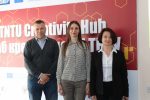
A series of training sessions were conducted at Ternopil Ivan Puluj National Technical University as part of the international project “Smart Manufacturing, Innovation, Learning-labs and Entrepreneurship” (SMILE). The training took place from April 11 to April 13, 2023.
The participants of the training sessions included 47 students from the following groups: PP-11 (majoring in 076 “Entrepreneurship, Trade, and Exchange Activities”), MB-21, MB-22, MBs-21 (majoring in 192 “Construction and Civil Engineering”), SI-12, SI-22 (majoring in 123
“Computer Engineering”), and MO-41 (majoring in 133 “Industrial Machine Building”).
The training was conducted by some experts from the university, including Tetyana Vitenko, the head of the Department of Food Technology Equipment; Yuriy Skorenky, the head of the Department of Physics; Natalia Marynenko, a professor in the Department of Economics and
Finance; Iryna Strutynska, a professor in the Department of Computer Science; and Viktor Voroshchuk, an associate professor in the Department of Food Technology Equipment.
The educational program focused on four main topics: innovative entrepreneurship, the development of a business model for a startup project with elements of smart manufacturing, challenges of digital transformations, and packaging design using CAD and CAM systems.
The focus was on the fundamental principles of the Industry 4.0 and 5.0 concepts, as well as smart manufacturing and digital twins. The importance of technological and business components was discussed in detail, emphasizing the significance of collaboration and self-belief. Participants learned about the importance of having a great idea and, even better, an exceptional team and a well-developed business model for their projects. Topics such as market research, niche selection, and the extraordinary importance of these elements were explored. There was an in-depth study of CAD and CAM technologies and prototyping.
The functioning of elements in the innovative infrastructure supporting entrepreneurship, including startup incubators and accelerators, was examined, along with an introduction to their distinct features. Participants created business models for startup projects with elements of smart manufacturing using the Canvas tool under the guidance of trainers.
Efforts were dedicated to improving construction management practices, optimizing resource utilization, soil quality monitoring, producing smart sports equipment and clothing for athletic training, and manufacturing food products for athletes.
Furthermore, trends and challenges of digital transformations in entrepreneurship, particularly in the Industry 5.0 ecosystems, were investigated. Emphasis was placed on digital twins and their comprehensive impact on production processes. The training covered various levels of digitization and implementation stages, ranging from virtual copies of individual objects for remote information retrieval and quality control, to virtual twins of entire production lines for real-time remote management and advanced big data processing for forecasting and process optimization.
The participants understood how to use the SolidWorks software to create packaging models and prepare project files for production, including arranging parts on material sheets and configuring production parameters. The interns also participated in the manufacturing of a prototype.
Despite the alarm signal during one of the training days, none of the participants refused to work. They continued their work in the shelter of Building No. 4, where they discussed, brainstormed, created, and found inspiration.
Overall, the training program was highly interesting and informative. The participants learned about many interesting aspects of entrepreneurship and manufacturing, which will help them become successful.
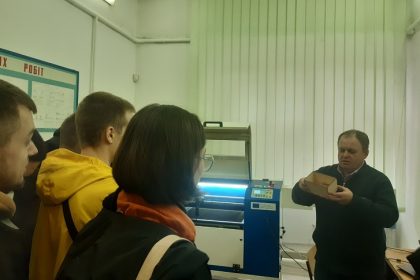
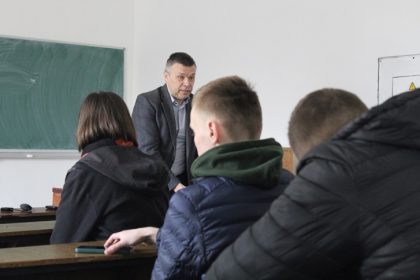
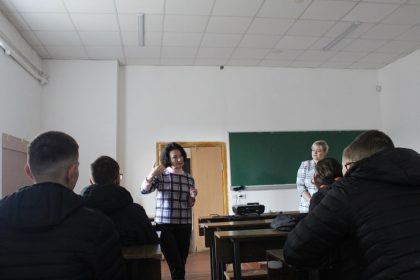
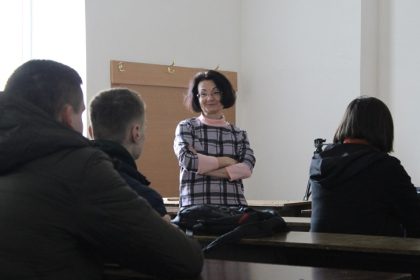
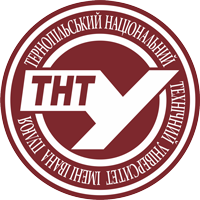
 Member of European University Association
Member of European University Association




